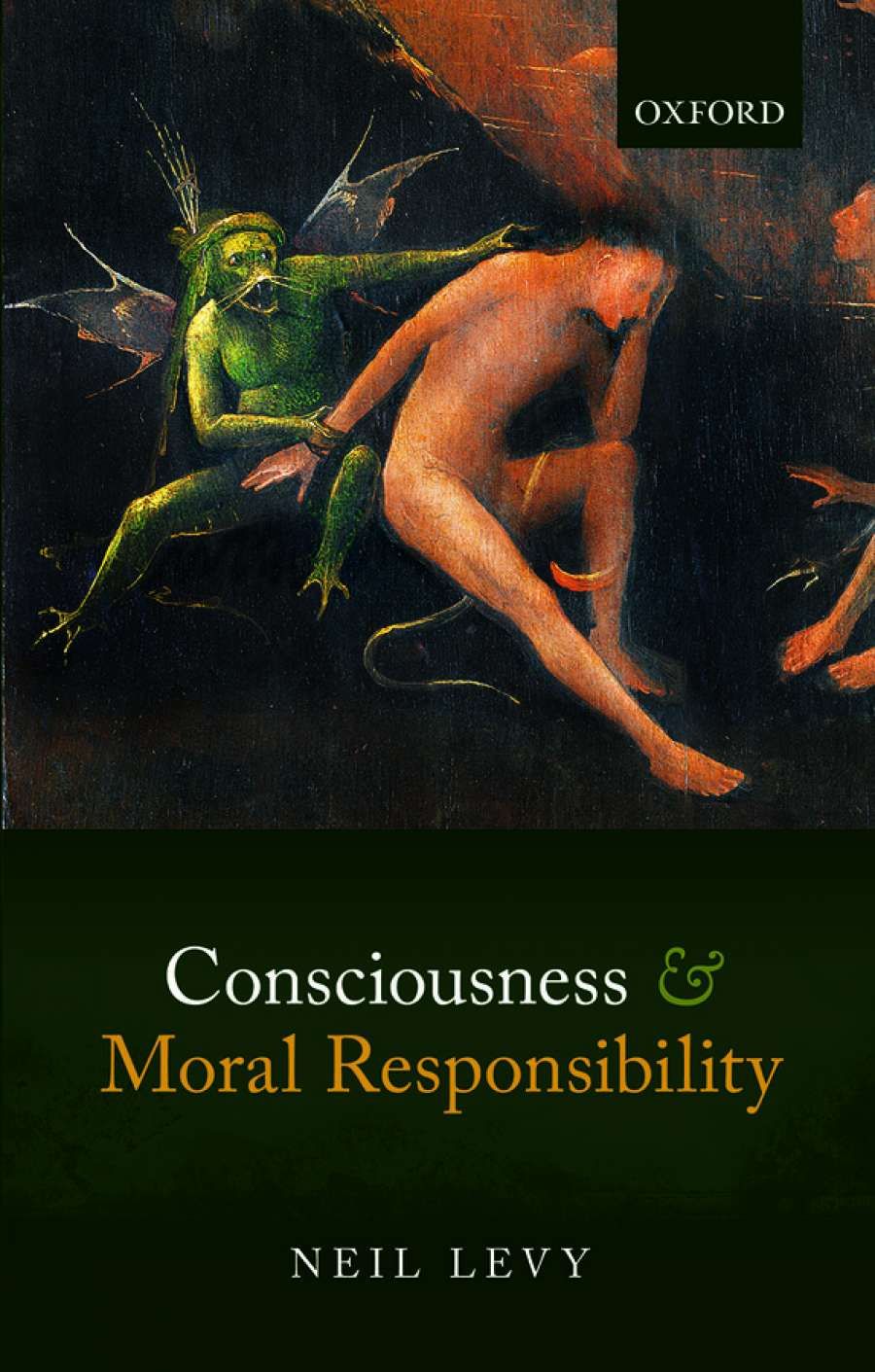
- Free Article: No
- Contents Category: Philosophy
- Custom Article Title: Adrian Walsh reviews 'Consciousness and Moral Responsibility' by Neil Levy
- Review Article: Yes
- Online Only: No
- Book 1 Title: Consciousness and Moral Responsibility
- Book 1 Biblio: Oxford University Press, $117 hb, 176 pp, 978019870638
The specific philosophical claim about morality and consciousness that Levy defends in the book is the so-called 'Consciousness Thesis'. According to this thesis, it is consciousness of some of the facts that gives our actions the moral significance that is a necessary condition for moral responsibility: in short, the thesis says we cannot be responsible for beliefs we hold and attitudes we express if we are unaware of them.
In recent times, this common sense idea has come under considerable attack from two opposing philosophical directions. There are some philosophers who would say that we are responsible for ideas and attitudes of which we are not conscious. Moral responsibility does not require consciousness. Such critics claim that 'their work is psychologically realistic and in tune with recent trends in cognitive science'. (Presumably, following this rather extreme line of reasoning, those who commit crimes while asleep are responsible for them.) There are also those who run the other way and suggest that consciousness studies provide grounds for eschewing the idea of moral responsibility altogether.
These are significant claims, since moral responsibility is a central element of everyday social life. Can those who were not conscious of the causes of their actions be regarded as fully answerable for those actions?
Levy defends a view of moral responsibility that treats consciousness as necessary for attributions of blame and praise while acknowledging that much of what we do is caused by factors of which we are not conscious. We are not responsible for our implicit moral attitudes, but moral responsibility is maintained.
'In what sense can we say that the person chooses what she does or she thinks?'
At the heart of Levy's response is his account of the conditions under which a person is morally responsible for their actions. Moral responsibility for Levy concerns the circumstances under which it is reasonable to punish or to reward. In determining when a person might be treated harshly or alternatively praised, we need to consider the evaluative attitudes that are expressed in his or her actions. It is the evaluative attitudes expressed that are central for Levy, and in order for our actions to express evaluative agency we must be aware of their moral significance. However, in the cases where we lack such control, agents are not aware of the moral significance of what they do. Hence, Levy argues, implicit moral responsibility is 'too weak a peg' on which to hang moral responsibility.
Thus, according to Levy, we are responsible for far less than people often think. This is, perhaps, a slightly depressing conclusion since an important part of most people's self-image is the ideal of being in control of their actions. We might also wonder about the role that blame plays in our aspirations of moral improvement. If we are not held to account for our implicit beliefs and attitudes, then what motivation might there be for us to attempt to overcome those that involve unjust biases?
 Neil Levy
Neil Levy
This is a remarkable book that brings sophisticated philosophical analysis to bear on very recent research in neuroscience and cognitive psychology. It is full of fascinating studies that explore the many ways in which we choose non-consciously. What is most impressive, over and above his knowledge of the contemporary scientific literature, is Levy's ability to draw out, in clear and readily accessible prose, the normative implications of the science. This is a distinct virtue of the book. In a methodological note in his concluding remarks, Levy observes that philosophers will only understand what human beings are actually like through a deep engagement with the evidence. At the same time, the moral issues raised are ultimately philosophical in nature and cannot be solved by scientists. They should not be turned over to the scientists presumably because this would involve answering a different set of questions to those asked by philosophers on topics like moral responsibility.
For anyone interested in the moral significance of consciousness – and more specifically recent scientific research into consciousness – this is essential reading.


Comments powered by CComment